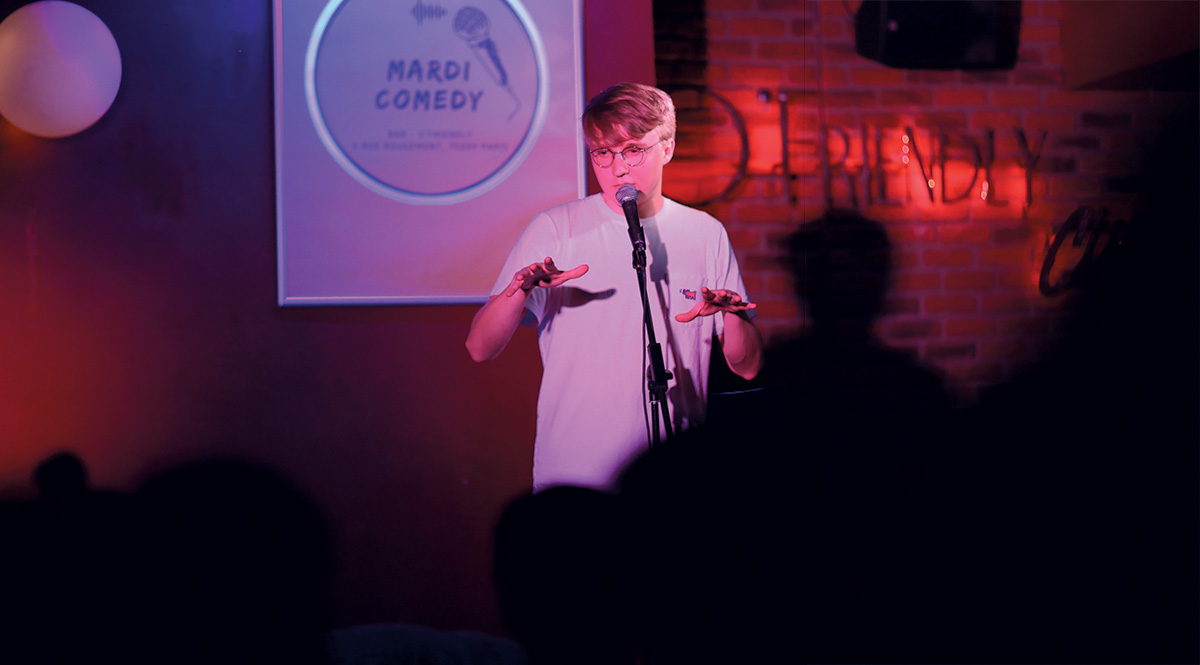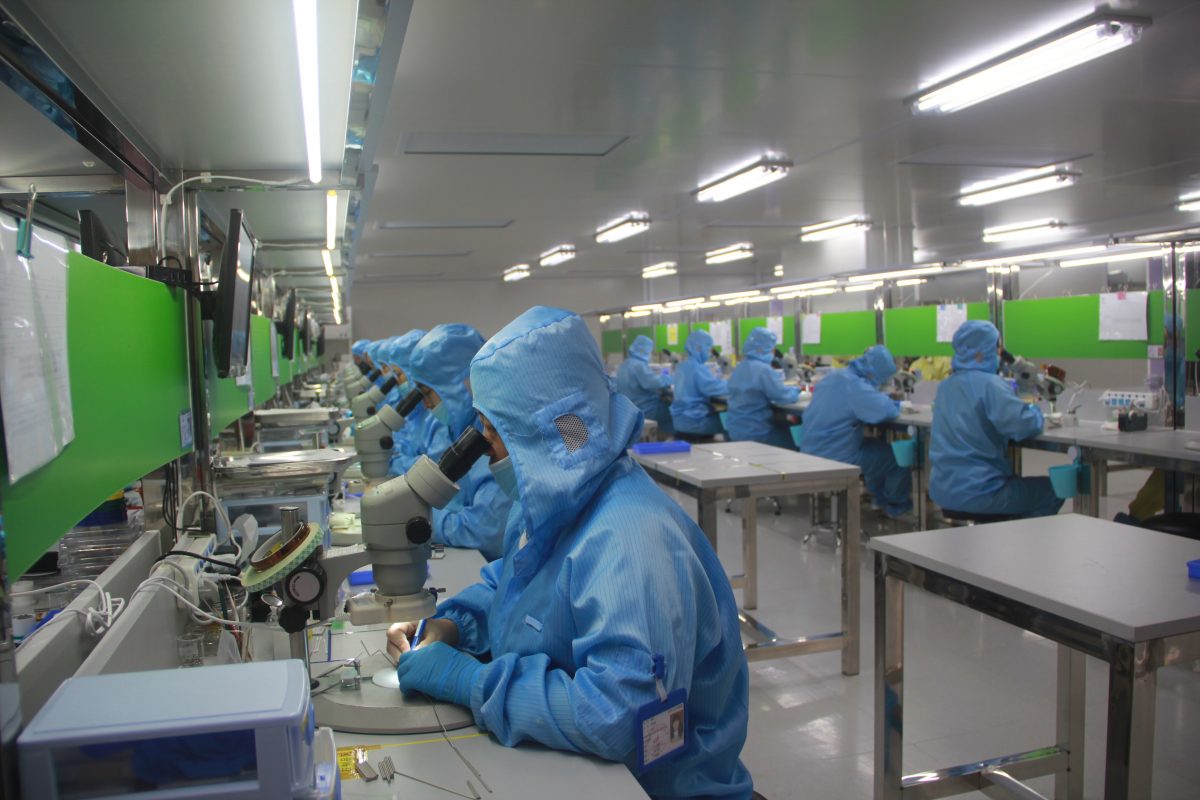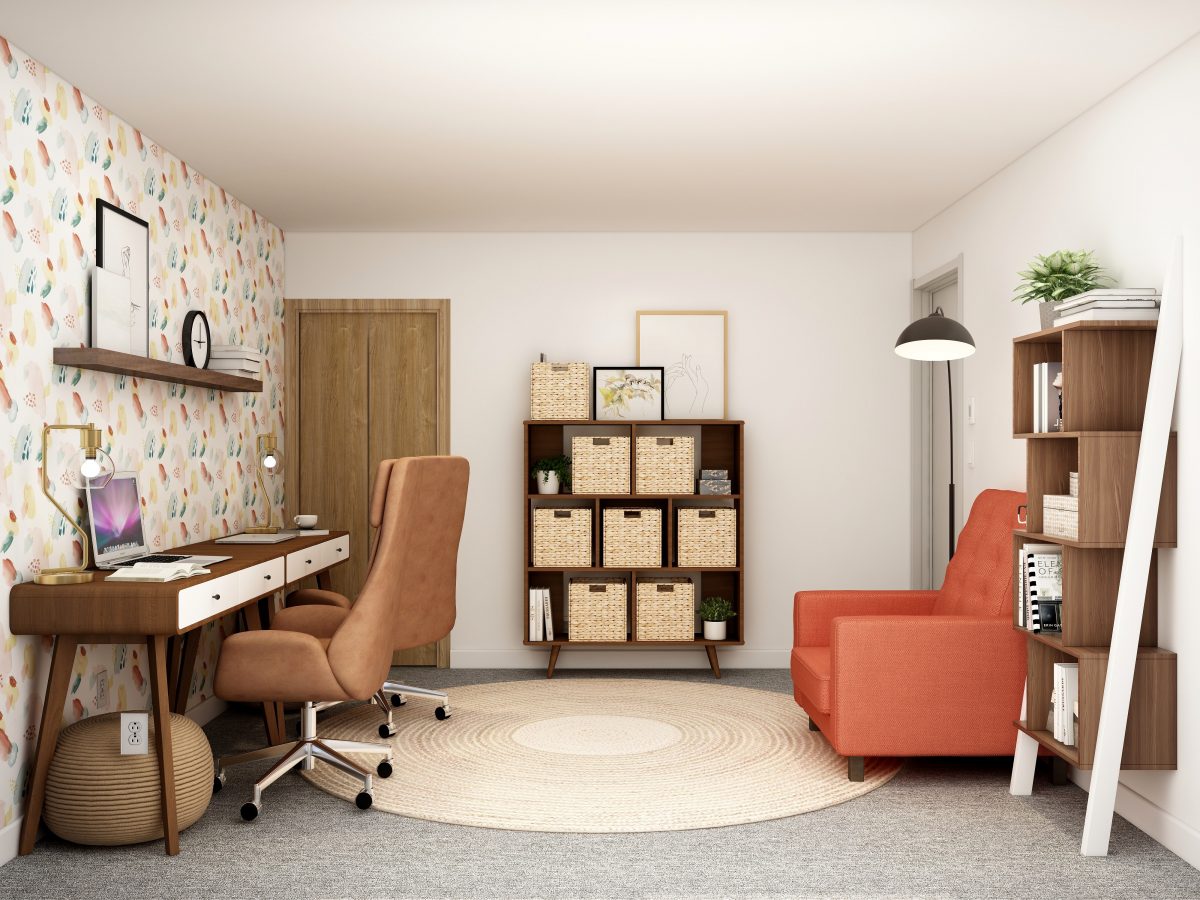Thomas de Salivet de Fouchecour (class of 2020) is a young comedian who specialises in stand-up. A demanding exercise in public speaking which requires the mobilisation of different forms of intelligence.
Thomas’ public speaking skills were first noticed in March 2018 when he first took part in the Campus Comedy Tour.
A national inter-establishment competition organised by the Business grandes écoles and the universities. “At the time,” explains Thomas, “I was a third-year student, and, even if I had wanted to be on stage for a long time, I was a complete beginner in the art of stand-up!”
An exhilarating experience in all aspects, it encouraged him to try again the following year. “I signed up for a second time and this time, I was lucky enough to be selected to take part in the final which took place at La Cigale, in Paris, in front of over 1000 people.”
This competition was the trigger of a series of critical opportunities: “In particular, it was my meeting with the comedian Harold Barbé which gave me access to numerous stages in theatre-cafes in Normandy and Paris. This gave me a taste for it and made me want to develop my skills whilst simultaneously studying at EM Normandie.”
The art of stand-up, or the combination of spatial, linguistic and interpersonal forms of intelligence…
Stand-up is a form of comedy where you make people laugh whilst literally standing up! It is a unique technique in theatrical terms insofar as the person who stands alone on the stage must fill the entire space around him/her. It is a complex exercise which requires that you have a total awareness of your own body as you need to ensure that the audience’s attention is fully and permanently on you. Thomas explains, “When setting up, I learn to fill the stage, to master my gestures and movements with extreme precision.”
Behind the façade of total improvisation, this form of public speaking also draws upon other forms of intelligence: linguistic of course, but also, and especially, interpersonal.
“To be able to write a text” says Thomas “you need to draw on your own personal experience and every time I go on stage, I am completely vulnerable!”.
Both internally intense and demanding, stand-up also requires excellent listening skills. “When I am on stage, I am constantly adapting to the audience, using the reactions of individuals to create a complicity with them and constantly developing the interactivity” he adds. This interpersonal form of intelligence is one he fully intends to transfer to his professional journey.
Pitching in a company or on a stage?
On graduating from his Master 2 degree on the Paris campus, Thomas would like to be able to combine his passion for standup and his future career. Thomas concludes “if I can make a living from this, then I shall follow it through. I am well aware of how much work I still need to do. Today, acting is a total pleasure and every one of my encounters helps me move forward.”
Should you wish to discover the art of stand-up, Thomas has created his own weekly comedy platform with other actors: Comedy Tuesdays, at the café-theatre O’Friendly, in the 9th arrondissement of Paris.
You can follow Thomas via his Instagram account to keep up with all his updates: @defouch__
Interview by Alexandra Caroni-Scaccia (class of 2007)




